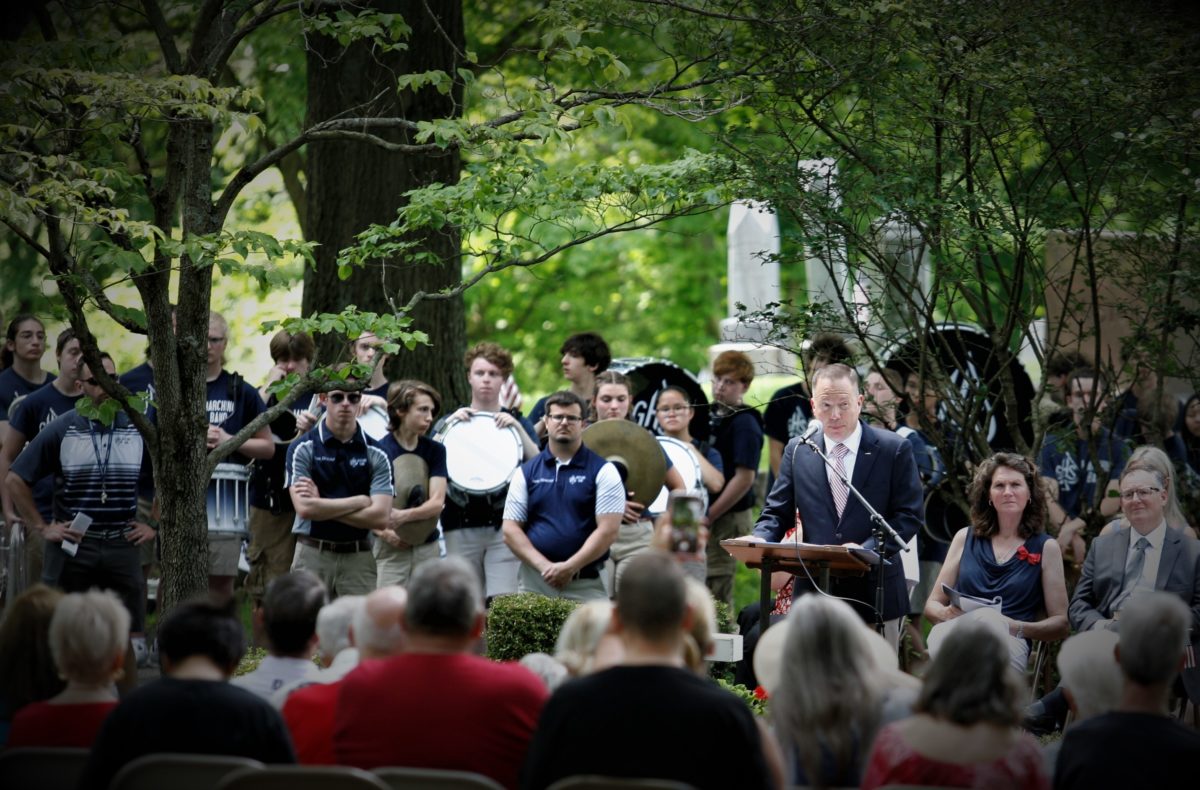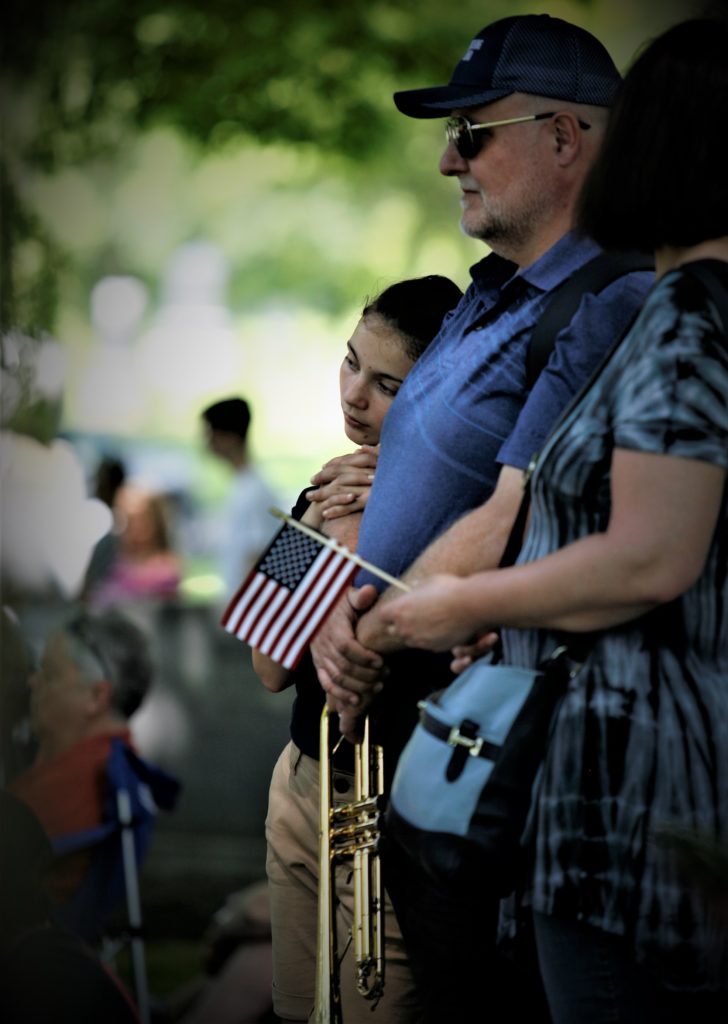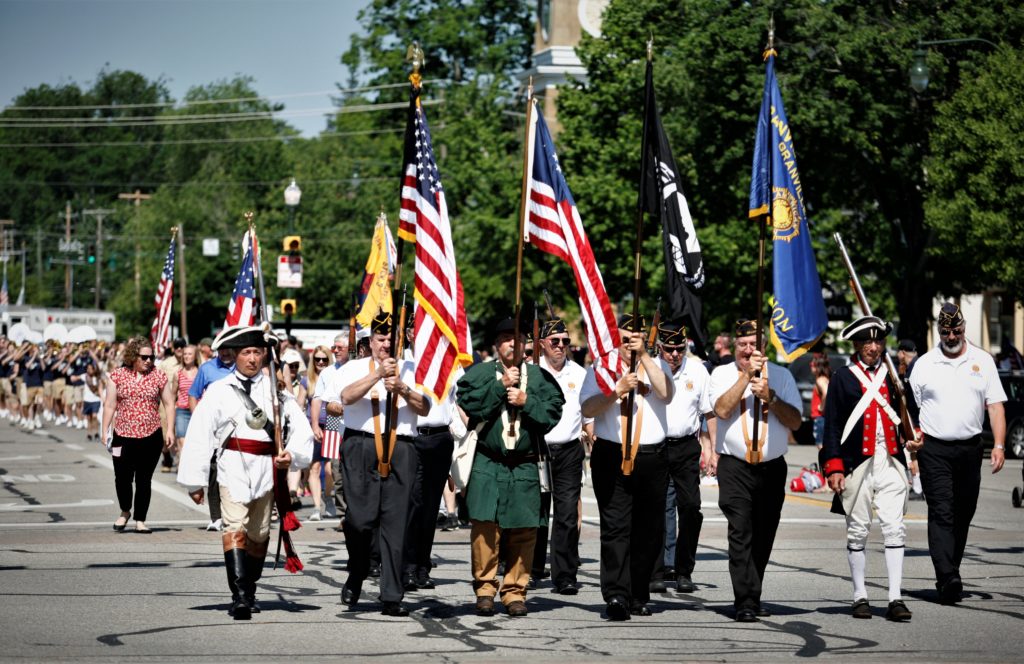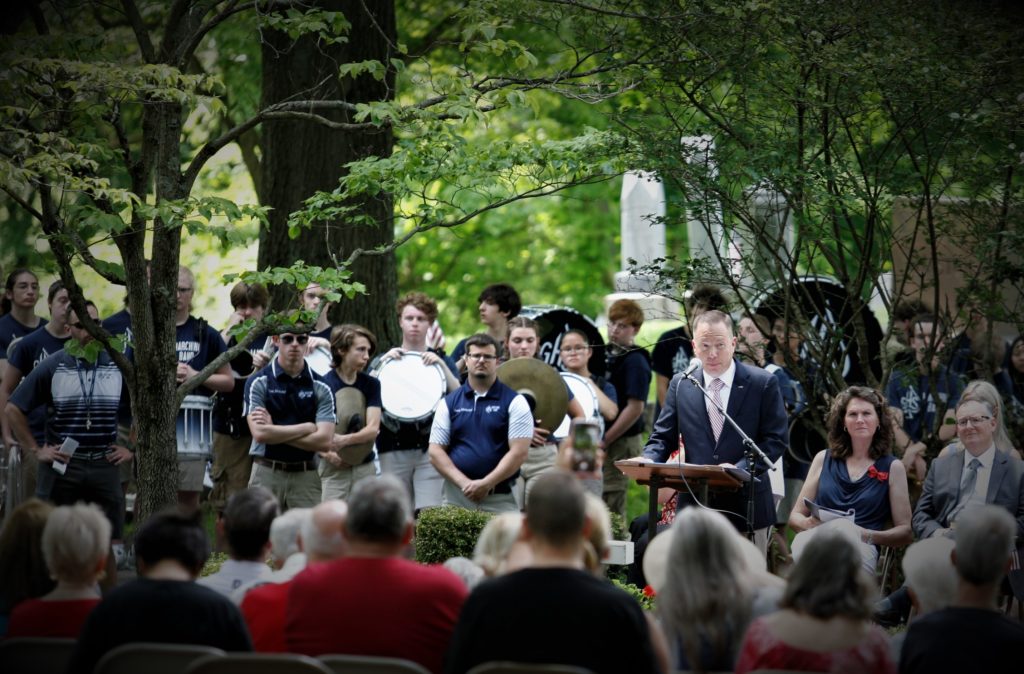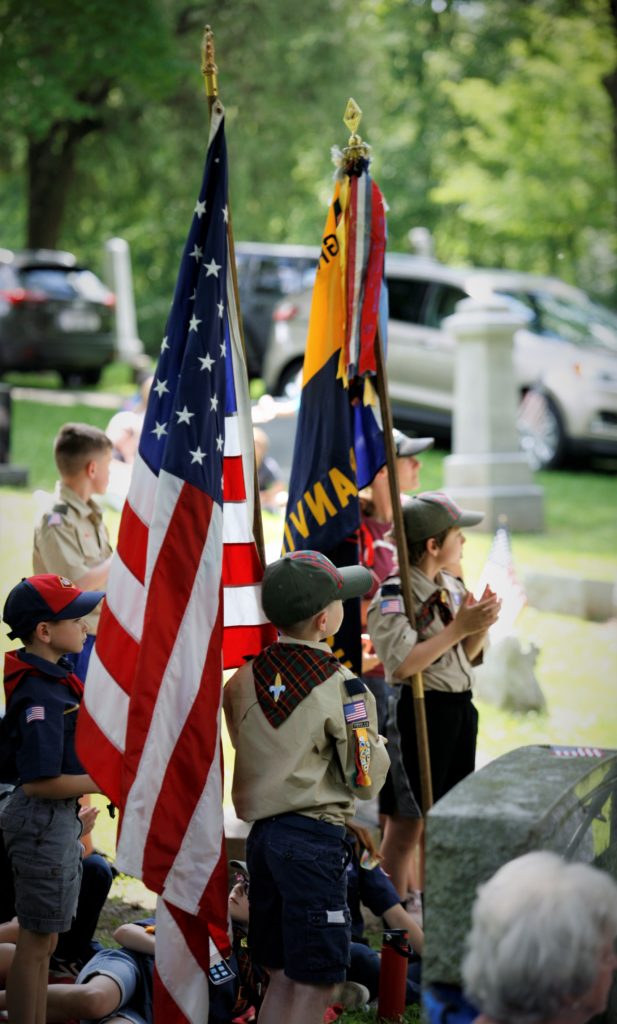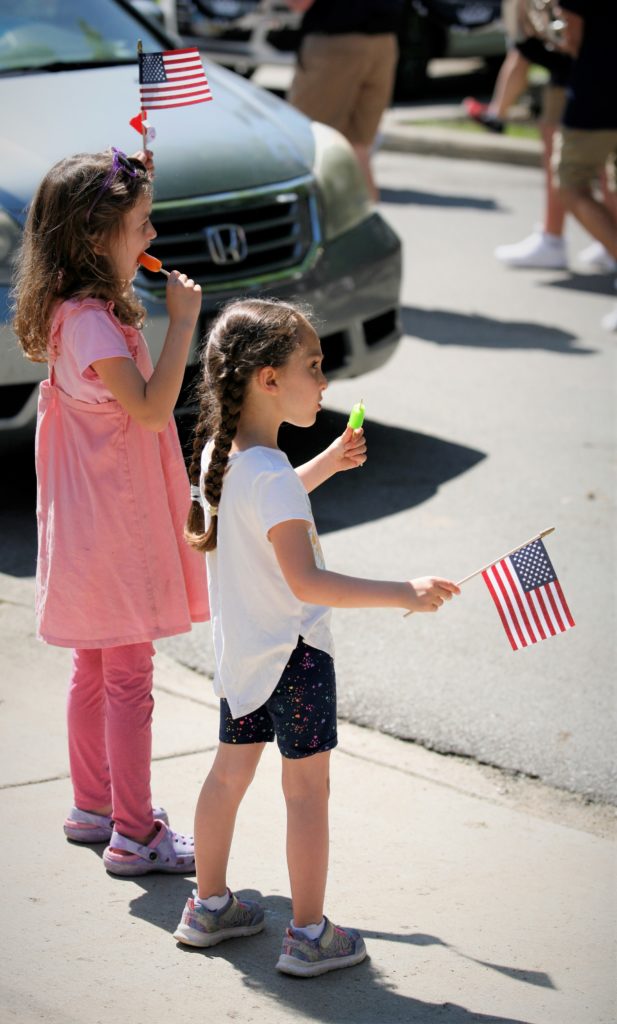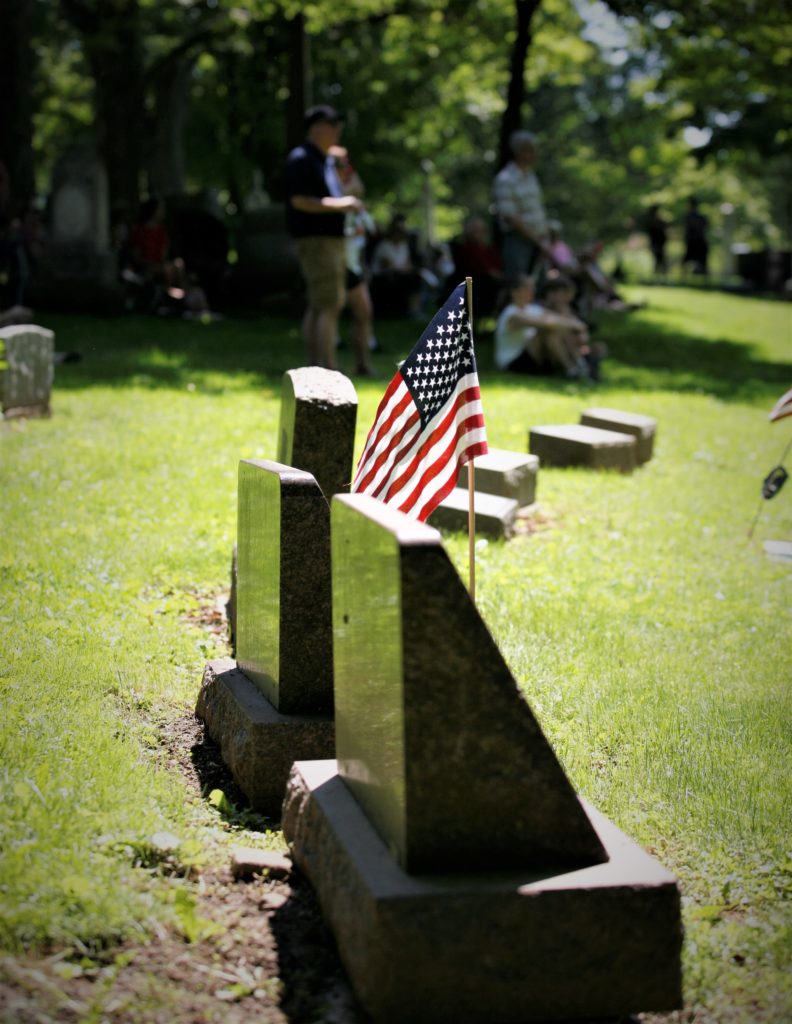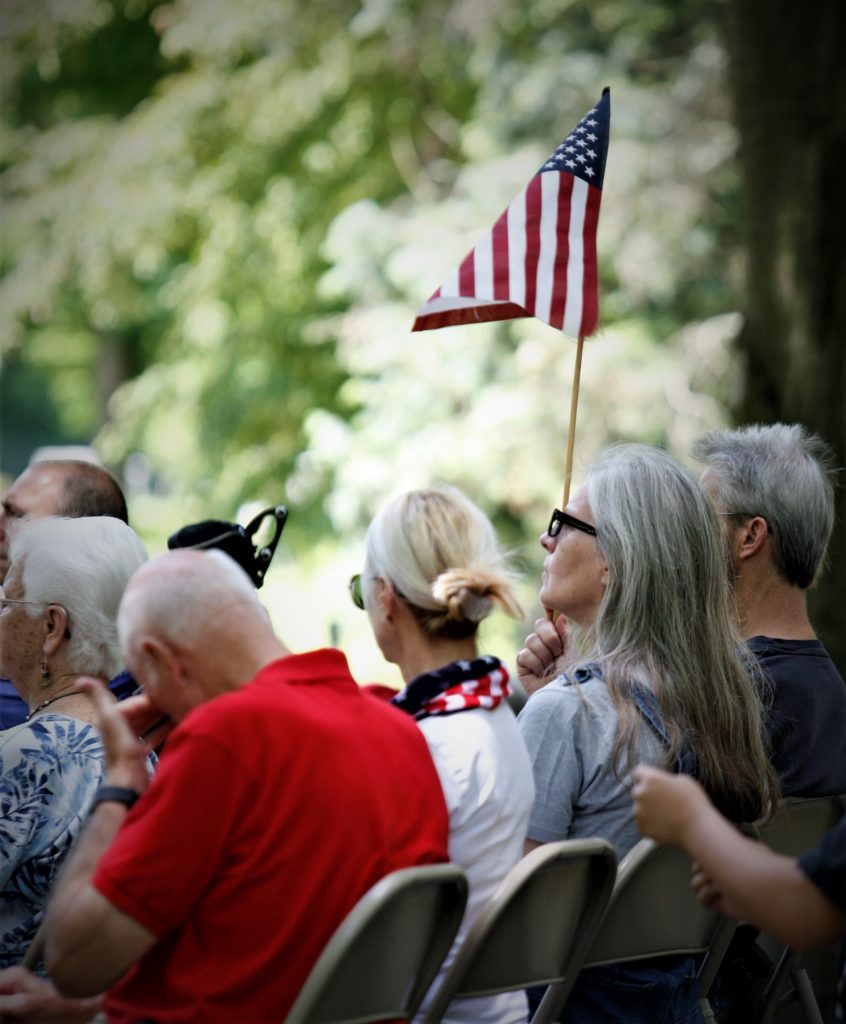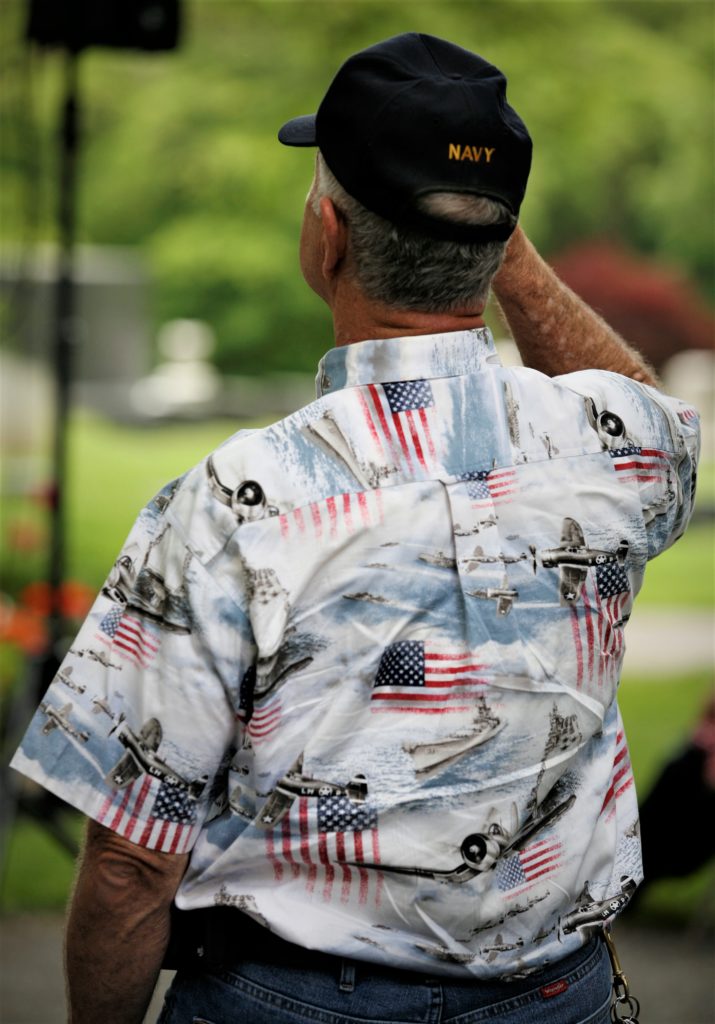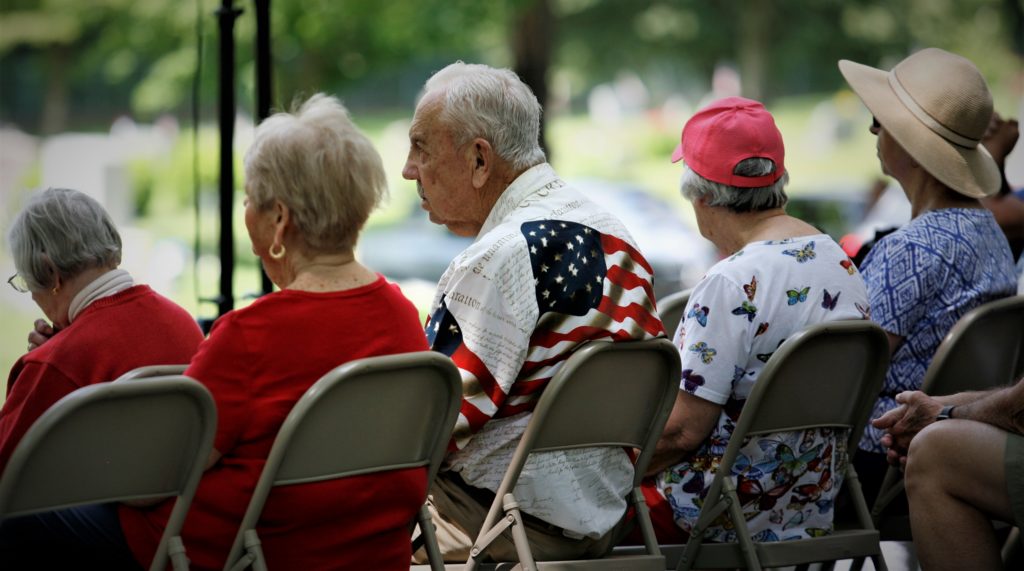The parade lasted all of 10 minutes.
It was a 75-degree Monday, and there was a light breeze while hundreds of residents lined Broadway at the center of Granville. They assembled to salute the thinning ranks of aging veterans who led this Memorial Day parade while holding flags and shouldering ceremonial rifles.
Girl and Boy Scouts, a few village and township leaders, and a handful of Daughters and Sons of the American Revolution joined the block-long band as it played The U.S. Armed Services Medley and marched toward Maple Grove Cemetery.
Then, a remarkable thing happened: The parade-watchers stepped off the curb behind the marchers and became a part of the parade. We turned south onto Pearl Street, and the parade grew even larger as we walked a couple of blocks, turned left and arrived at Maple Grove Cemetery. Here, Granville held its 154th annual observance of Memorial Day – an enduring town tradition that honors Granville residents and all armed service members who gave their lives in service to their country.
As resident Jacob Valenzuela read Logan’s Order, I wondered how many people among us were personally affected by these losses. There was a palpable sense of reverence and gratefulness.
I grew up in New Jersey and came to Granville three years ago to study at Denison University. My father, grandfather, and uncle all served in the military and were lucky enough to be unscathed by the war’s physical wounds.
My grandfather, Eugene, served in the Construction Battalion, The Seabees, in World War II. After my father was born in the 1960s, Eugene would tell him stories about it: “My father did not talk about the war a great deal, but he made it seem like an adventure when he did,” said my dad, Kevin.
My uncle was drafted into the Vietnam War after he graduated from college and had found a job in New York. In 1968, when my dad was 8 years old, his brother joined the Marine Corps and attended Officers Candidate School in Quantico, Virginia.
“I did not know what was going on, but Mom and Dad were worried,” said my dad. “My brother became a platoon commander.”
He served one tour in 1969 and another in 1970. “Every evening, the casualty report would be posted on the (TV) screen. I would zone out, trying to take it in,” my dad said. “It was like there was a horror movie in the 6 p.m. news every single night.”
My uncle returned home safely, started a family, and retired as a colonel in the Marine Corps.
My dad attended New York Maritime College in the Bronx and joined the Merchant Marine Reserve Program while in school.
After graduation, He served eight year in the Naval Reserve and participated in a few two-week Navy summer programs. He served with my godfather, Tom, after rooming with him throughout Maritime College.
As I begin my final year studying psychology and journalism at Denison, I wonder what impact World War II had on my grandfather, who I never got to meet.
I wonder how it lived on in his relationship with his family, and the way it affected my dad’s relationship with his brother. There were great uncles who served in World War II, and my father’s godfather served in Vietnam. I have cousins who served in Afghanistan and Iraq. I wonder how time in the military has touched my family’s psyche.
I have a better idea about that after hearing the words of Herb Koehler, Granville’s Village Manager, who is an Army veteran and gave the keynote speech at the Memorial Day service. He served 25 years and rose to the rank of colonel in the Army and was involved in four deployments in the Middle East.
He relayed personal experiences of loss – friends and colleagues who served and died – and the profound effects of those losses on each person’s family and friends.
He shared the shocking loss of a veteran and friend who survived war but returned to civilian life and died by suicide. Koehler reminded us that some being remembered on Memorial Day died of unseen wounds – lasting psychological scars that have led to an alarming rate of suicide among veterans.
Koehler honored the thousands who have died because of that silent, internal war.
The Department of Veterans Affairs reported in 2019 that 6,261 U.S. veterans had taken their own lives. That was an average of 17 veterans a day, and while it was a 7% decrease from the previous year, it’s still higher than the suicide rate of non-veterans. In fact, the VA reported that former service members died by suicide at a rate twice as high as non-veterans, and young veterans, those ages 18-34, died at a rate almost three times higher than non-veterans.
Koehler honored the thousands who have died because of a silent, internal war.
His speech lasted all of about 10 minutes – about as long as that memorable parade – and we can hope that those who heard it will support veterans so that rather than mourn their loss on Memorial Day, we can honor them on Veterans Day.
If you or someone you know are in need of help, call the National Suicide Prevention Line at 1-800-273-8255 or text ‘4HOPE’ to 741-741. Veterans in need of financial assistance, medical services or other help can contact the Ohio Department of Veterans Services at (614) 644-0898 or the Licking County Veterans’ Service Commission at (740) 670-5430.

